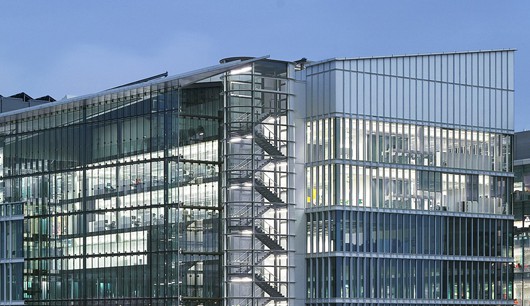
AstraZeneca (AZ) saw generic competition take another bite out of its financial results in 2013 – with more pain due this year – but chief executive Pascal Soriot expects the pipeline to deliver some early relief.
Fourth-quarter revenues came in at $6.84bn, down 6 per cent, as generics continued to drag down several top-selling products, including cholesterol treatment Crestor (rosuvastatin) and gastrointestinal drug Nexium (esomeprazole).
Asthma and chronic obstructive pulmonary disease (COPD) treatment Symbicort (budesonide and formoterol) had another strong quarter, rising 11 per cent to $976m, but will face increasing competition in the marketplace with the launch of new combination therapies from the likes of GlaxoSmithKline and Novartis.
Analysts said the 8 per cent fall for Crestor to $1.46bn was a little more than expected, while Nexium – down 3 per cent to $991m – held up fairly well. The latter is expected to take a massive hit later this year, however, after AZ loses patent protection in the US in May.
Meanwhile, AZ is already seeing pressure on earnings, with operating profit down to $1.98bn in the fourth quarter thanks to an accounting charge related to disappointing sales of diabetes drug Bydureon (exenatide). The company is expecting a low- to mid-single-digit decline in for 2014, with profits falling in the teens.
New products are desperately needed to fill the gap, and Soriot highlighted the potential of AZ’s diabetes franchise – now wholly-owned after the $2.7bn buyout of former partner Bristol-Myers Squibb (BMS) – as a key growth driver in the coming years.
The diabetes revenue boost will be felt in 2014 and will be offset by a higher cost base, but AZ suggested there are opportunities to streamline the business, particularly in the area of sales.
The company is also upbeat on the prospects for oral antiplatelet drug Brilinta/Brilique (ticagrelor), which has been a slow burner for AZ but has started to show some signs of gaining momentum, with fourth quarter sales of $98m, up from $38m a year earlier.
Soriot noted that the drug is growing well in Europe and other world markets, claiming the top position in its class in some, but has struggled to gain headway in the US. One issue affecting take-up in the US is a Department of Justice (DoJ) investigation into the PLATO trial of the drug, which “impacted us negatively in the latter part of 2013,” said Soriot.
The late-stage pipeline is the key to AZ’s future fortunes, however, and Soriot said momentum is building in R&D with 11 drugs already in late-stage development and another 19 potential phase III projects earmarked for 2014 and 2015.
AZ has signed a string of deals in recent months to replenish its pipeline since Soriot took over the helm in 2012. Last year it bought respiratory company Pearl Therapeutics in a $1.15bn deal as well as biopharma companies AlphaCore Pharma, Spirogen, Amplimmune and Omthera Pharmaceuticals.
Among the pipeline drugs that AZ expects to deliver this growth are ovarian cancer candidate olaparib, selumetinib for non-small cell lung cancer and benralizumab for severe asthma.
“I am confident that we can return to growth faster than anticipated and expect our 2017 revenues will be broadly in line with 2013,” he said.




